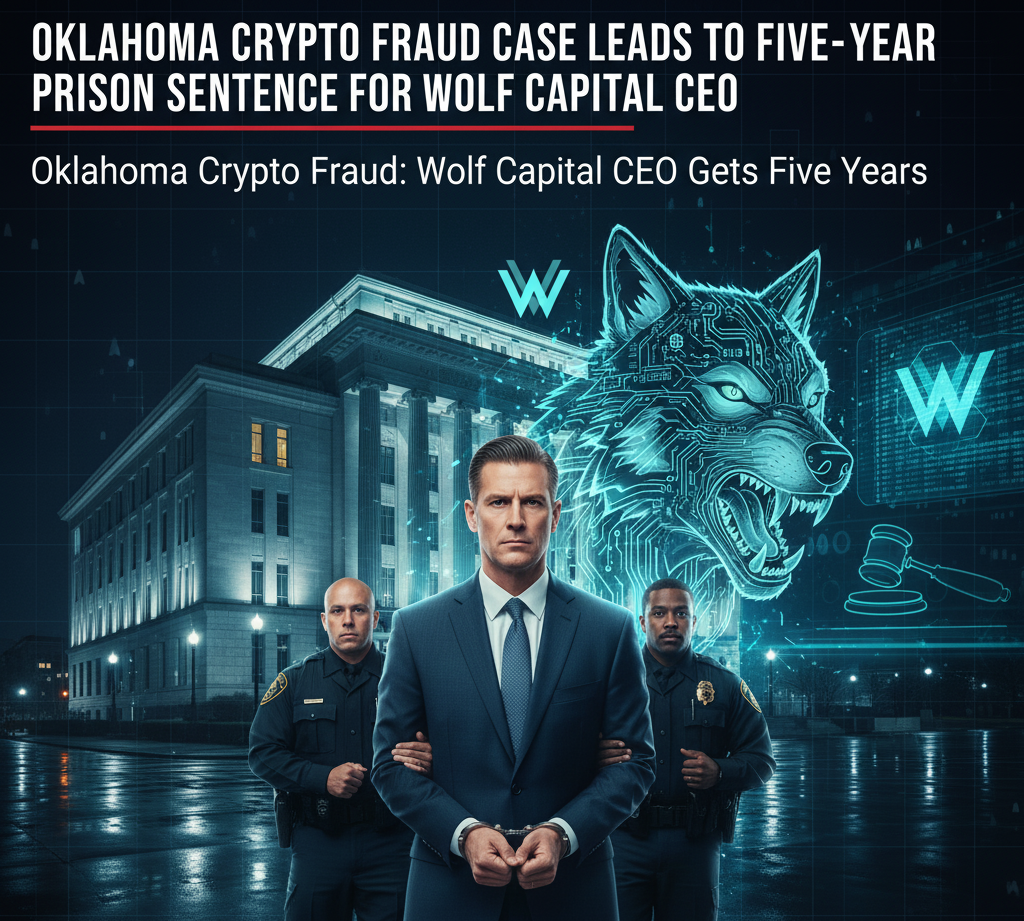Court Documents Detail How the Oklahoma Crypto Fraud Case Developed
Ford, 36, served as CEO and co-founder of Wolf Capital Crypto Trading LLC. The firm attracted more than 2,800 investors with bold promises. He stated that he was capable of making 1-2 percent daily returns. These amounts were almost equivalent to 547 percent per year. The case of Oklahoma crypto fraud revealed that he had never thought of such returns.
Investigators claimed that Ford operated websites, social sites, and online adverts to raise money. He embezzled money to spend himself. He also stood by his co-conspirators. These activities had significant financial damages to the victims in various states. In January 2025, he pleaded guilty to conspiracy to commit wire fraud.
The government approved additional fines. Ford must forfeit $1 million. He should also pay over 170,000 restitution. The Justice Department said that Ford committed recurrent and knowing false statements to attract new investors.
Besides, the investigation was conducted by the U.S. Postal Inspection Service. Prosecution was done by the Fraud Section of the Justice Department. Officials clarified that the Oklahoma crypto fraud case demonstrates the increased attitude of the government to investment crimes.
Recent World conspiracy Emphasizes the magnitude of the Oklahoma Crypto Fraud Case.
Even though the sentence that Ford received can be considered a significant response, there are other similar cases occurring in the rest of the world. Liang Ai-Bing is a Chinese national who was recently arrested by authorities in Thailand. He purportedly assisted in the running of the FINTOCH scheme that raised over $31 million. The authorities stated that it was aimed at investors in Asia.
A major ruling was also made in August by a New York court. Eddy Alexandre, the founder of EminiFX, was ordered to give back 228 million by the judges. Regulators concluded that the AI theme of the platform was a cover of a massive fraud scheme. Immigrant communities were severely impacted in the United States by the case.
There was another incident in Detroit. The authorities filed a lawsuit against RealT on the grounds of selling tokenized shares of the ownerless property. The company earned approximately 2.72 million dollars via such false offers. Regulators have also reported that the cases of fraud involving digital assets seem to increase more rapidly than the process of enforcing the fraud.
Authorities Warn Investors as Oklahoma Crypto Fraud Case Concludes
One of the victims in the Oklahoma crypto fraud case narrated on the emotional and financial cost. He had spent over 100,000 dollars on the false claims of Ford. He requested the court to sentence him heavily. The judge was also informed by Ford that he took full responsibility and that he would make amends.
There were also strange claims in the case. The spokesperson of Ford informed local news outlets that their client got engaged with an online personality referred to as 0x. Ox is also a frequent capital in Ethereum addresses and other encrypted information used in crypto communities. Federal investigators are yet to confirm the identity of this person.
Whereas the case of the Oklahoma crypto fraud came to its end, authorities still keep an eye on such fraudulent activities. Investment regulators caution investors to exercise caution when using all sites as well as avoid deals that offer unrealistic investments.
